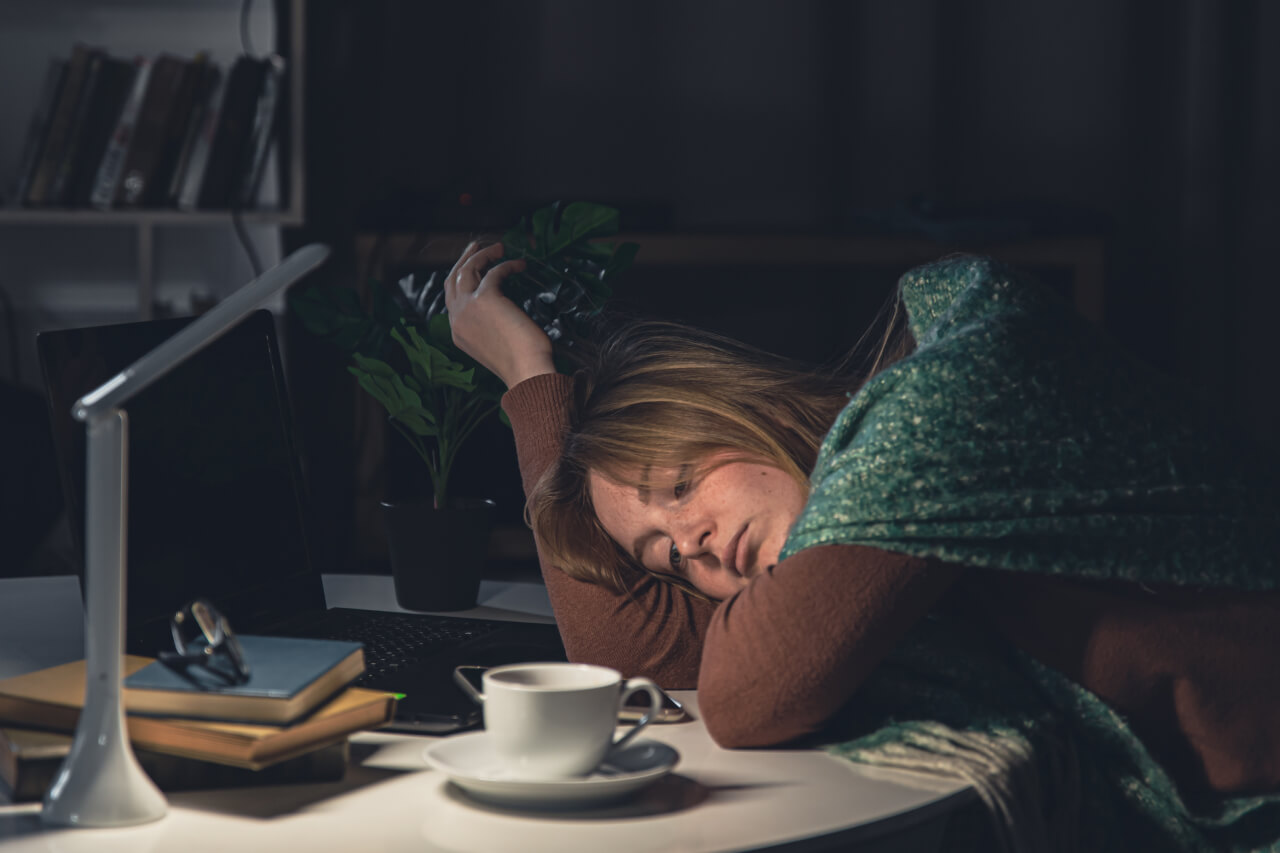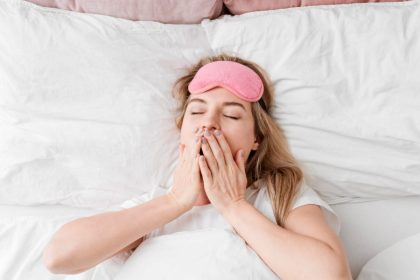Insomnia, or the inability to fall asleep or stay asleep, is a common sleep disorder that affects millions of people worldwide. Sleep is essential for our health and well-being, but many people struggle to get enough quality sleep every night.
Insomnia can have various causes, such as stress, anxiety, pain, or medical conditions. It can also have negative consequences, such as impaired cognitive function, mood swings, reduced immunity, and increased risk of chronic diseases.
If you suffer from insomnia, you may have tried different remedies to improve your sleep, such as medication, supplements, or lifestyle changes. However, some of these options may have side effects, be ineffective, or become habit-forming.
That’s why many people are looking for natural alternatives to treat their insomnia, and one of them is CBD. CBD, or cannabidiol, is one of the main cannabinoids found in the cannabis plant.
Unlike THC, or tetrahydrocannabinol, CBD does not have psychoactive effects, meaning it won’t get you high. Instead, CBD has various health benefits, such as reducing inflammation, pain, anxiety, and seizures. CBD can also interact with your endocannabinoid system, which helps regulate many bodily functions, including sleep. But how does CBD work for insomnia, and what does the research say about its effectiveness and safety? In this blog, we will answer these questions and more, and give you some tips on how to use CBD for sleep.
Does CBD relieve insomnia?
The answer to this question is not straightforward, as CBD may have different effects on different people and different types of insomnia.
However, some evidence suggests that CBD can help with some of the underlying causes or symptoms of insomnia, such as:
Anxiety
Anxiety is one of the most common causes of insomnia, as it can make it hard to relax and fall asleep.
CBD may help reduce anxiety levels by interacting with serotonin receptors in the brain, which are involved in mood regulation.
A 2019 study found that CBD improved anxiety and sleep quality in 79% of the participants after one month of treatment.
Pain
Pain is another common cause of insomnia, as it can interfere with your comfort and ability to sleep.
CBD may help relieve pain by reducing inflammation and modulating pain perception.
A 2018 review concluded that CBD has analgesic effects in various chronic pain conditions, such as neuropathic pain, fibromyalgia, and arthritis.
REM sleep behavior disorder
REM sleep behavior disorder (RBD) is a condition that causes people to act out their dreams during REM sleep, which can disrupt their sleep and pose a risk of injury.
CBD may help improve RBD symptoms by inhibiting the reuptake of anandamide, an endocannabinoid that regulates REM sleep.
A 2014 study reported that CBD reduced RBD episodes in four patients with Parkinson’s disease.
Daytime sleepiness
Daytime sleepiness is a common consequence of insomnia, as it affects your alertness and performance during the day.
CBD may help reduce daytime sleepiness by promoting wakefulness and enhancing cognitive function.
A 2014 study found that CBD increased wakefulness and attention in rats, while a 2018 study showed that CBD improved cognitive performance and mood in healthy volunteers.
What do we know about the effect of CBD on sleep?
While CBD may help with some aspects of sleep, it is not clear how it affects sleep itself.
Some studies suggest that CBD may have a sedative effect, while others indicate that it may have a stimulating effect, depending on the dose, the time of administration, and the individual response.
A 2019 review summarized the findings of several studies on the effect of CBD on sleep in humans and animals.
The review found that:
- CBD may increase total sleep time and reduce sleep latency (the time it takes to fall asleep) in low to moderate doses (up to 160 mg).
- CBD may decrease total sleep time and increase sleep latency in high doses (above 160 mg).
- CBD may increase slow-wave sleep (deep sleep) and decrease REM sleep (dream sleep) in low to moderate doses.
- CBD may decrease slow-wave sleep and increase REM sleep in high doses.
- CBD may have a biphasic effect on sleep, meaning that it may have opposite effects at different doses.
The review also noted that the effect of CBD on sleep may depend on the presence or absence of other cannabinoids, such as THC, which may have synergistic or antagonistic effects.
Additionally, the review pointed out that most of the studies were short-term, small-scale, or had methodological limitations, and that more research is needed to establish the optimal dose, timing, and duration of CBD treatment for sleep.
How to take CBD safely
If you want to try CBD for insomnia, you should consult your doctor first, especially if you have any medical conditions or take any medications that may interact with CBD.
CBD may affect the metabolism of some drugs, such as blood thinners, antidepressants, and anticonvulsants, and may cause side effects, such as drowsiness, dry mouth, or low blood pressure.
You should also choose a high-quality CBD product from a reputable source, and check the label for the ingredients, the CBD content, the THC content, and the third-party lab testing results.
You should avoid products that contain synthetic cannabinoids, pesticides, heavy metals, or other contaminants, as they may be harmful to your health.
There are various ways to take CBD, such as oils, capsules, gummies, vapes, or topicals.
Each method has its pros and cons, depending on your preference, convenience, and bioavailability (the amount of CBD that reaches your bloodstream).
Generally, oils and vapes have the highest bioavailability, while capsules and gummies have the lowest.
Topicals are mostly used for localized pain relief, and may not have much effect on sleep.
The best way to find the right dose of CBD for you is to start low and go slow.
You can begin with a low dose, such as 5 to 10 mg, and gradually increase it until you find the dose that works for you.
You should also monitor how you feel and how you sleep, and adjust the dose accordingly.
You may need to experiment with different doses, times, and methods of administration, as the effect of CBD may vary from person to person and from day to day.
What the research says about CBD and sleep
The research on CBD and sleep is still limited and inconclusive, but it shows some potential benefits for people with insomnia and related conditions.
CBD may help improve sleep by addressing some of the causes or symptoms of insomnia, such as anxiety, pain, RBD, or daytime sleepiness.
CBD may also have direct effects on sleep, but these may depend on the dose, the time of administration, and the individual response.
However, more studies are needed to determine the optimal dose, timing, and duration of CBD treatment for sleep, as well as the long-term safety and efficacy of CBD.
Moreover, the quality and regulation of CBD products vary widely, and some products may contain contaminants or inaccurate amounts of CBD or THC.
Therefore, you should be cautious and consult your doctor before using CBD for insomnia.
Side effects and safety concerns of CBD
CBD is generally considered safe and well-tolerated, but it may cause some side effects, such as:
- Drowsiness
- Dry mouth
- Low blood pressure
- Lightheadedness
- Diarrhea
- Changes in appetite or weight
- Liver damage (in rare cases)
CBD may also interact with some medications, such as:
- Blood thinners
- Antidepressants
- Anticonvulsants
- Antifungals
- Antihistamines
- Opioids
- NSAIDs
CBD may also affect the levels of some hormones, such as cortisol, melatonin, or thyroid hormones, which may have implications for sleep and other health conditions.
Therefore, you should consult your doctor before using CBD, especially if you have any medical conditions or take any medications that may interact with CBD.
You should also monitor your symptoms and your sleep quality, and report any adverse effects to your doctor.
Conclusion
CBD is a natural compound that may help you sleep better by addressing some of the causes or symptoms of insomnia, such as anxiety, pain, RBD, or daytime sleepiness. CBD may also have direct effects on sleep, but these may depend on the dose, remedies to help you and the time of administration, and the individual response. However, the research on CBD and sleep is still limited and inconclusive, and more studies are needed to establish the optimal dose, timing, and duration of CBD treatment for sleep, as well as the long-term safety and efficacy of CBD. Moreover, the quality and regulation of CBD products vary widely, and some products may contain contaminants or inaccurate amounts of CBD or THC. Therefore, you should be cautious and consult your doctor before using CBD for insomnia.
FAQs
What is CBD, and how does it relate to sleep?
CBD, or cannabidiol, is a compound found in the cannabis plant.
It interacts with the endocannabinoid system in the body, which plays a role in regulating various physiological processes, including sleep.
CBD has been studied for its potential to improve sleep by reducing anxiety and promoting relaxation.
Can CBD help treat insomnia?
Research suggests that CBD may be beneficial for individuals struggling with insomnia.
Its calming effects on the nervous system may help alleviate factors that contribute to sleep disturbances, such as anxiety and stress.
However, it’s essential to consult with a healthcare professional before using CBD as a sleep aid.
Is CBD safe for improving sleep, and are there any side effects?
CBD is generally considered safe, with few reported side effects. However, individual responses can vary.
Some may experience mild side effects such as fatigue or changes in appetite.
It’s crucial to start with a low dose and monitor how your body responds. If you have underlying health conditions or are taking medications, consult your doctor before using CBD.
How should I take CBD for better sleep?
The method of CBD consumption can vary.
Some people prefer CBD oil tinctures taken sublingually, while others may choose capsules, edibles, or topical creams.
Finding the right dosage is a personal process and may require experimentation.
Start with a low dose, and if needed, gradually increase until you find the optimal amount for better sleep.
Can CBD interact with other sleep medications or supplements?
CBD has the potential to interact with certain medications, particularly those metabolized by the liver.
If you are taking other sleep medications or supplements, it’s crucial to consult with your healthcare provider before introducing CBD.
They can provide guidance on potential interactions and ensure your safety.
How long does it take for CBD to show its sleep-improving effects?
The time it takes for CBD to affect sleep can vary among individuals.
Some may experience improvements on the first night, while others might require consistent use over a few weeks to observe significant changes.
Patience is key, and it’s essential to establish a routine and monitor the cumulative effects over time.
Remember, while CBD shows promise for enhancing sleep, individual responses can vary, and it’s essential to approach its use for insomnia under the guidance of a healthcare professional.





